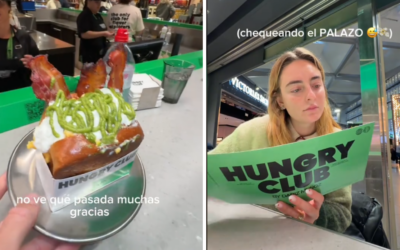Chappell Roan brought the treatment of the music industry to the artists back to the national conscience this week during his speech to accept the Grammy for the best new artist, challenging music companies to do better for young and developing acts.
“The record stamps need to treat their artists as valuable employees with health insurance and protection and habitable salary,” said Roan. “Tags, we have you, but do you have us?”
Roan’s comments reflect a deeply frustrating system that leaves many artists feeling vulnerable and helpless, but the medical care system for musicians, as for most people in the United States, is even more difficult to navigate what Even Roan’s comments suggest. So how really does it work?
One could assume for Roan’s speech that the artists of the main labels do not have access to the insurance, but that is not necessarily the case. Although the labels do not directly provide coverage for their artists in the way in which the majority of employers in other industries have agreements established with SAG-AFTRA that allow their artists to qualify for insurance through the powerful union of the industry of the industry of the industry entertainment.
As the executive director of SAG, Duncan Crabtree-Iland, he explains, the recording artists who are signed under royalty agreements with the three major main record companies: Universal Music Group, Sony Music Entertainment and Warner Music Group, remain eligible for the Health insurance coverage, regardless of their annual earnings of their recordings whenever they are signed with the label. The premiums for these plans are currently at $ 375 per financial quarter, according to the SAG site. Another union, the American Federation of Musicians, represents instrumentalists as session musicians and also offers medical care options.
Crabtree-Ilaland says he spoke briefly with Roan after his speech and wants to find ways to create awareness among the class of artists so that they can have more knowledge about the resources available to them.
“We are trying to run the voice,” says Crabtree-Iland. “Artists in the music industry, in contrast to cinema and television, often work independently, so sometimes that leads to a bit of isolation, where information is not automatically shared because they are close to people “.
The lack of awareness about this type of union resources has been a problem for recording artists for years. Even so, the SAG agreement with the labels does not completely address the problems that Roan stood out.
On the one hand, artists signed with an important record label represent only a small percentage of all recording artists in the business. The artists of many independent labels are not eligible for the same SAG agreement, since their labels have not forged agreements with the union. The same goes for any artist without sign that he is still trying to establish a support point in the industry.
If an artist is eliminated, as Ran did of WMG’s Atlantic records in 2020, he loses his eligibility of insurance and have to find a plan through the health care law at a helpless or through Cobra, which he can be incredibly expensive. This can be particularly difficult for artists who sign young and have no training to enter another field, but ultimately is similar to what employees in more typical jobs have to face whether they renounce or are fired.
Defenders and experts in musical policies who spoke with Rolling stone Recognize that the insurance problem goes far beyond musicians, impacting all industries in this country, and argue that the only one for systemic improvement comes from the federal government.
“Our system is fragmented. The changes must be made at a federal level ideally to include more people at a lower cost, ”says Renata Marinaro, managing director of Health Services at Entertainment Community Fund, which helps provide resources to those in music and entertainment without insurance.
She points out that navigating in insurance networks can be a challenge for the artists they travel. “If you are a musician who is on tour and get your coverage through the market in New York City, you will not be (necessarily) be covered in Ohio or California,” he continues. “It is frustrating for me to tell someone who is easier for you to travel through Europe and see different doctors with travel insurance than it is for you to travel through the United States. Ultimately, we have to get away from these state silos and have a federal response and make insurance more affordable. “
Most policy experts Rolling stone He spoke with a lawyer for some form of universal medical care system to provide easily accessible independent coverage that does not depend on an employer.
“For so many musicians, you are moving among employers so often. Most of the musicians, have many different people who pay you: you have several labels, transmission services, every time you play a festival, “says Joey La Neve Defrancesco, organizer of United Musicians and Allied Workers.” It’s a vertiginous variety of People.
The medical care question is only part of a broader conversation about how artists are classified in the industry. While Roan asked that the labels treat artists as “valued employees”, even that statement is a bit spiny when it comes to the details. Technically, label artists are not considered employed at all; If they were, that could open the door for the labels for those who worked to take 100 percent of their music under a standard “rental work”. As such, being reclassified as employees is not a particularly popular movement in the industry.
Kevin Erickson, the director of the Music Future of Music coalition, a group of non -profit musical policies in Washington, DC, contrasts with the situation facing other types of concert workers. “For example, Uber drivers have been organized to try to reclassify themselves as employees instead of independent contractors, because for an Uber driver, being a W-2 employee can solve many problems,” says Erickson. “There are situations for some musicians where reclassification is appropriate, but for a recording artist who is signed with a stamp, which raises many questions with which independent contractors in other parts of the economy do not fight.”
Even so, Erickson and other defenders such as Defrancesco are pressing to find ways to give artists better resources while maintaining their intellectual property.
Umaw, for example, worked with the representative Rashida Tlaib (D-Michigan) last year to present the Vital Salary Law for Musicians, a bill that sought to establish a new royalty flow by obtaining a rate to the subscription services and add more money to the insignificant income that many artists see from their transmissions.
“Artists in the music industry are simply not organized enough,” says Defrancesco. “The solution to many of these problems should inevitably join an organization and take collective measures to force the industry to take artists more seriously.”
(Tagstotranslate) Chappell Roan (T) Grammys 2025 (T) Healthcare


















